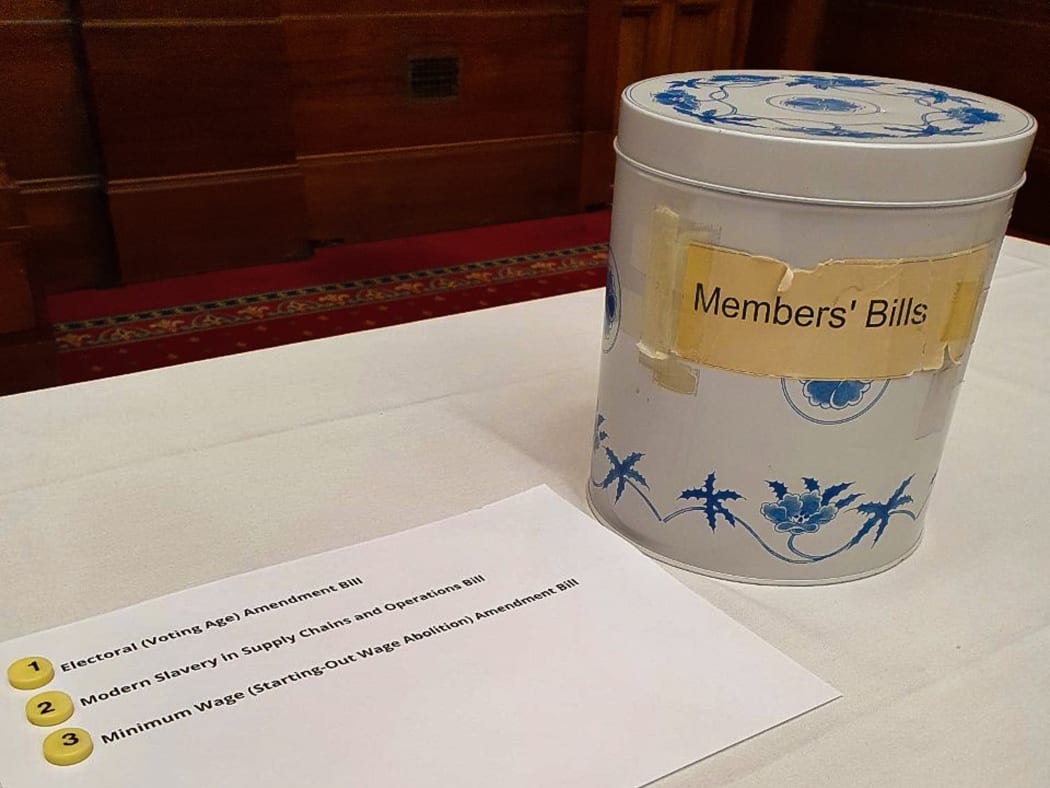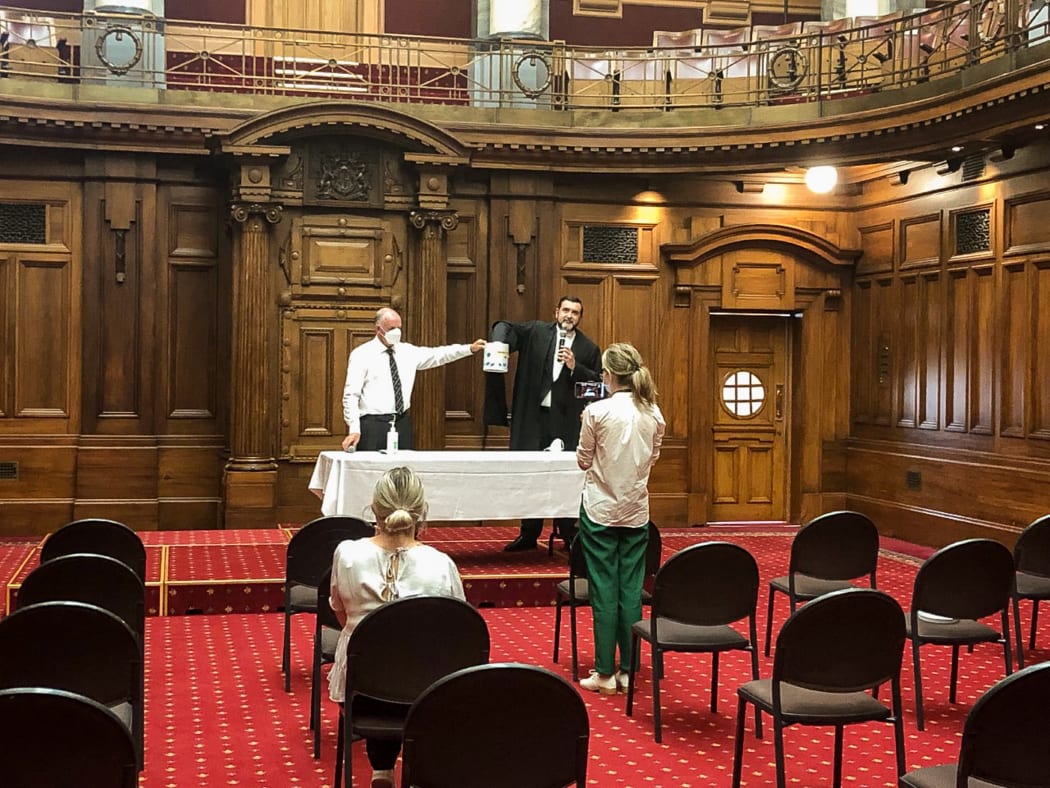Reducing the voting age to 16, fighting modern slavery in supply chains, and resolving age-based discrimination against young workers – these are the diverse issues tabled by the 120 youth MPs for potential debate by the 10th Youth Parliament.
Highlighting what is important to rangatahi in New Zealand today, the three topics on the ballot were reflected in three bills available for debate – the Electoral (Voting Age) Amendment Bill; Modern Slavery in Supply Chains and Operations Bill; and Minimum Wage (Starting-Out Wage Abolition) Amendment Bill.

The biscuit tin ballot for Youth Parliament 2022. The three bills available address reducing the voting age to 16, fighting modern slavery in supply chains, and resolving age-based discrimination against young workers Photo: Parliament
Placed into a biscuit tin bought from Deka in the 1990s, the process of selection then became one of luck.
The Speaker of the House Trevor Mallard drew from the tin at random, and the Minimum Wage Amendment Bill was selected this week in a Livestream on Facebook.
The mock bill will amend section 4 of the Minimum Wage Act 1983, which allows a starting-out and training minimum wage of $16.
Wages are a hot topic in New Zealand as inflation hits a three-decade high. The Government recently announced a minimum wage increase from $20 to $21.20 per hour, with an increase in the starting-out and training minimum wage from $16 to $16.96 per hour; both in effect from the beginning of April.
However $16.96 is still well below the current living wage of $22.75 per hour.

The Speaker and the Clerk of the House perform an online random biscuit tin ballot for a Youth Parliament bill in the old Legislative Chamber. Photo: Parliament
Those in favour of starting-out and training minimum wages put forward that it incentivises employers to hire young workers and supports the transition of youth into employment. Others argue that the wages are discriminatory on the basis of age and experience.
National Party Youth MP Aryan Bhatnagar represents Christopher Luxon’s Botany seat in Tāmaki Makaurau, Auckland.
“I’m glad that topic three was chosen as this year's mock bill. It’s topical considering today’s economic environment, and discussing it is paramount to ensure our youth get a fair go,” he said.
On the other side of the aisle, Labour Party Youth MP William Bell-Purchas represents Jacinda Arden’s seat in Mount Albert. Bell-Purchas shared Bhatnagar's enthusiasm for the chance to debate the mock bill.
“I’m thrilled about the selection of the Minimum Wage Amendment Bill for Youth Parliament 2022. The low uptake of the starting-out wage has shown that it is highly ineffective at what it aims to do in providing employment opportunities for young people.
“Young workers who are employed on a starting-out wage are disadvantaged and economically marginalised. This topic is therefore extremely relevant for discussion at Youth Parliament.”
More youth MPs are expected to announce their position on the mock bill in the coming weeks.
The 2022 event will run from 1 March to 31 August 2022, with the two-day Youth Parliament sitting of the house event held on 19-20 July 2022.
*Matteo Zhang is a member of the Youth Press Gallery which takes the role of independent media reporting on youth MPs and Youth Parliament 2022. This article can be republished freely on your platform subject to the following conditions:
- It must be republished as is (this can include visuals credited to VNP or NZ Parliament)
- It must include the following attribution to RNZ as the copyright owner: This story was originally published on RNZ and is republished with permission.

